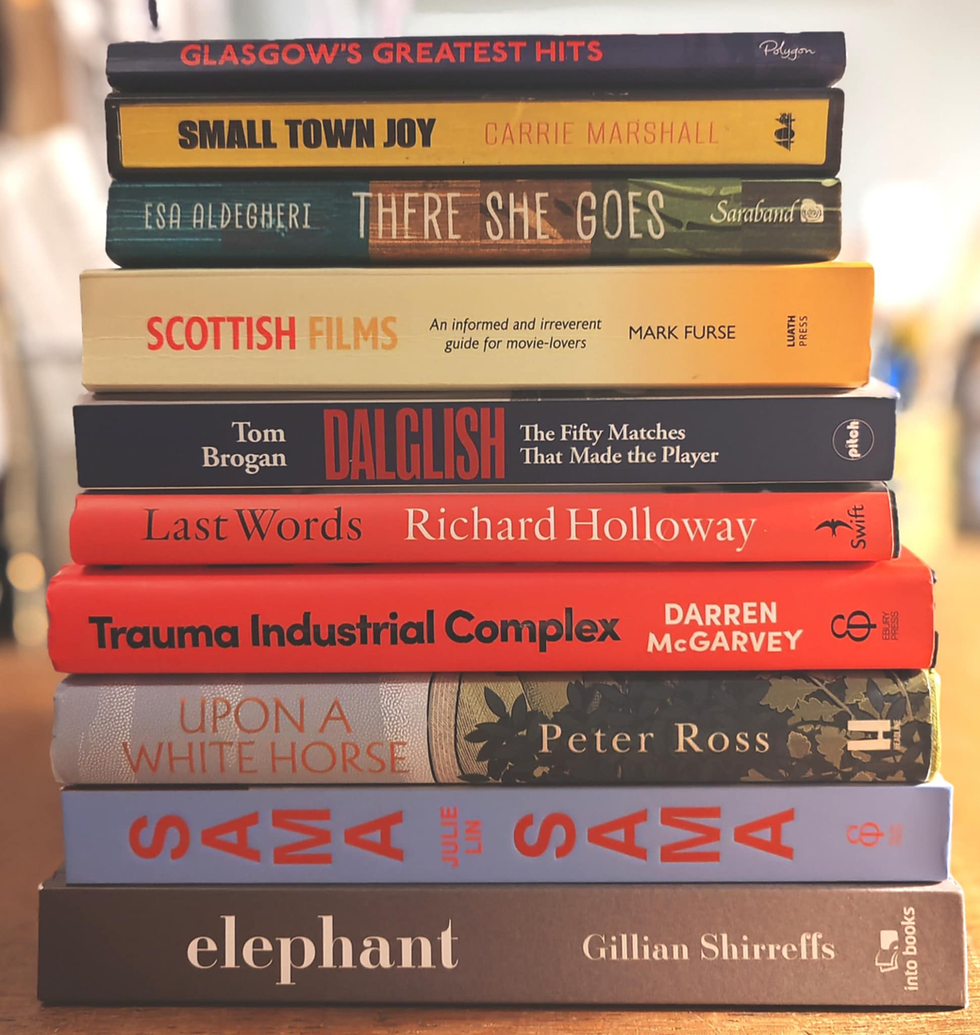Shared History: A Review Of Ronnie Browne’s Autobiography That Guy Fae The Corries
- Alistair Braidwood

- May 26, 2015
- 4 min read
Updated: Sep 1, 2022

If you asked most people in the street, “Who is Ronnie Browne?”, I doubt they would be able to tell you without you dropping a strong hint. If you said, “..that guy fae The Corries”, or showed them a picture (see left), the majority would know immediately. Beside Roy Williamson, he was one half of Scotland’s most iconic musical duo, and as a result both were best known collectively rather than as individual musicians. That’s obviously something that Browne is well aware of as That Guy Fae The Corries is the name of his autobiography, and it shows a modesty and self-deprecating sense of humour that runs through the book.
It is written with a warmth and humility which won’t surprise those who are aware of The Corries’ body of work, but it may surprise those who have preconceived ideas what a ‘Corrie’ autobiography is going to be like.
But then The Corries spent their career confounding people’s expectations and breaking down their prejudices. Too folk for more modern music fans, but too ready to entertain for some of the more earnest balladeers, they plowed their own musical furrow determined to play the songs they loved while giving people a good night out. That strength of purpose and certainty of identity is on each page of Browne’s book.
It begins at breakneck speed with the author recounting his Edinburgh childhood as most of us do our own, in an almost scattergun fashion which is a delight to read. There’s a snatch of a summer’s day here and an early, fleeting, friendship there. There are the memories of first loves and formative influences, and I have the feeling that there would likely be some different stories to recount if he were to start the book over again as another day would trigger other recollections about that time and the people he grew up with. As with most families, Browne’s had plenty of secrets and lies, and shared stories which are somewhere between the two. What unfolds is an incredibly evocative depiction of a young life in post-war Britain, and it is worth reading the book for his reminiscences of those early days alone.
The memories of youthful vigour give way to those of those of a young adult, and inevitably the pace of the book slows. Browne recalls how he came to paint (he is a successful portrait artist), his early entry into the Scottish music scene, his relationship with Roy, their appearances on many TV shows (often sharing the stage with some of the best known entertainers of the day), and, of course, the birth of a national anthem as their song “Flower Of Scotland’ takes on a life of its own. Just how that song has influenced individual men and women, and various teams (not all of them Scots) could be a book all of its own.
The Corries always stood aside from their contemporaries in the way they sounded and the way they looked. As with many musicians who have a strong image, it can often overshadow their music. For a long time they were the public face of Scottish trad and folk music at a juncture when culturally that form of music was seen as old-fashioned at best. What Browne makes clear is that they cared nane about such criticisms. They knew what they wanted to play, and how they would play it. More importantly there was a large and loyal audience who wanted to hear them do just that. As folk music is once more fashionable the influence of The Corries, and just how good they were, should not be overlooked and as such this book is timely. Ronnie Browne’s journey from being one of the new kids on the musical block, as part of The Corrie Trio and Paddie Bell, to singing at Glasgow’s Commonwealth Games in 2014 is remarkable as few musicians can dream of a career as long and successful.
The Corries may have made the headlines, but what keeps you reading, what you really care about and where the real story is to be found, is what was going on behind the headlines. It is the story of a close network of friends and family as they deal with all the things that life puts in their way. There are births, deaths and marriages; defeats, triumphs, arguments and reconciliations. Whatever is thrown at them, they face it together. James Kelman stated that real drama is to be found in ordinary people’s everyday lives, and it is in the everyday that the drama of Ronnie Browne’s life really shows itself. The clarity of such moments show he retains an artist’s eye for detail in the telling.
In recent times there has been the trend for people to write their autobiographies before they are of any real age. Katie Price had published five before her 36th birthday, for heaven’s sake. If ever there was a book which proved that autobiography should be an undertaking left ’til later in life it is That Guy Fae The Corries. If you like your biographies sensationalist then you should look elsewhere. There are plenty of recollections of the great and the good Ronnie Browne worked with and met over the years, from Lonnie Donegan to Hercules the Bear, but he is not a man to monger gossip. What you do get is the story of a life well lived written by someone with a healthy sense of what is important in life, and who.
Here are just a couple of examples of what The Corries did better than most. This is ‘Hunting Tower’ followed the heartbreaking ‘Green Fields of France’:
*The next Scots Whay Hae! podcast will be an interview with Ronnie Browne, and if the book is anything to go by it will be a cracking listen.









Comments